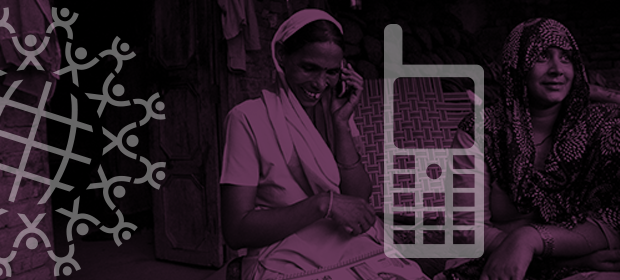Where We Work
See our interactive map


No one is surprised when digital health projects take longer than expected.Funding delays, competing priorities, limited availability of stakeholders, and governance procedures regularly thwart time tables. These delays can take weeks or even months, and, as time passes, the risk of losing the project’s institutional knowledge grows.
This is especially critical given the constant evolution of digital health projects as the field rapidly iterates, grows, and changes with technology enhancements.
K4Health recently worked on a project to improve knowledge-sharing and peer support among health care providers in Tanzania by connecting them to each other via mobile phones. The idea and buy-in for the project was all established through sensitization and relationship building among key stakeholders at the Ministry of Health, a local mobile network operator, and an international NGO.
However, no one was documenting the discussions among these key partners or sharing the essential insights each partner brought to the table. Then, before the project had really gotten off the ground, the partners experienced unexpected staff turnover, and the project implementation team added new staff.
The challenges of bringing a new team up to speed shed light on the need for better documentation, organization, and sharing of information. The early conversations and decisions made among the key partners were crucial for the ongoing development of the program in Tanzania, yet that critical information vanished as key staff members turned over.
The project in Tanzania is doing well today. The team now uses Google Docs to record and share notes from all meetings and uses Facebook to share information with external stakeholders. Knowledge management can foster country ownership — a critical ingredient for sustainable development.
InterAction, an alliance of global development organizations, defines country ownership as “the full and effective participation of a country’s population via legislative bodies, civil society, the private sector, and local, regional and national government in conceptualizing, implementing, monitoring and evaluating development policies, programs and processes.”While country ownership applies broadly to national-level development, it is applicable across all sectors (health, education, agriculture). Country ownership is critical not only to macro-level economic development and poverty reduction, but also to the strengthening of health systems and related services. Digital health, using information and communication technology to strengthen those systems, can help countries achieve their public health goals.
However, full and effective participation for country ownership requires certain capacity, knowledge and skills, of key stakeholders.
Knowledge management can ensure that people have the ability — the knowledge and resources — to perform their jobs effectively.In the context of country ownership, that “job” is participation in developing, implementing, tracking, and evaluating the country’s policies, programs, and processes. Knowledge management provides both formal and informal learning and sharing opportunities and ensures access to relevant information and tools.
Knowledge management can play a critical role in fostering country ownership of digital health in a number of ways:
These activities and the people carrying them out are the building blocks of country ownership of digital health. Digital health, country ownership, and knowledge management intersect in Senegal.
When it comes to the use of digital technology in health, Senegal resembles other low- and middle-income countries around the world. Many different people are doing many cool things using technology without necessarily talking to each other, coordinating, or building on existing systems.
So, while each initiative may see interesting results, the impact is often limited to a small number of people. Limited coordination or collaboration across initiatives means limited awareness of successes, even among government stakeholders. In early 2015, K4Health began providing technical assistance and support to the Government of Senegal, specifically to the Ministry of Health and Social Action (MSAS), to develop their first National eHealth Strategy. The strategy will help the government better coordinate ongoing and future digital eHealth initiatives in the country and ensure that those initiatives are aligned to the country’s health goals and objectives. Knowledge management is essential to this process. Read more.
This is an excerpt of a post originally published on The Exchange, a publication of the Knowledge for Health (K4Health) Project.
Get the latest updates from the blog and eNews




